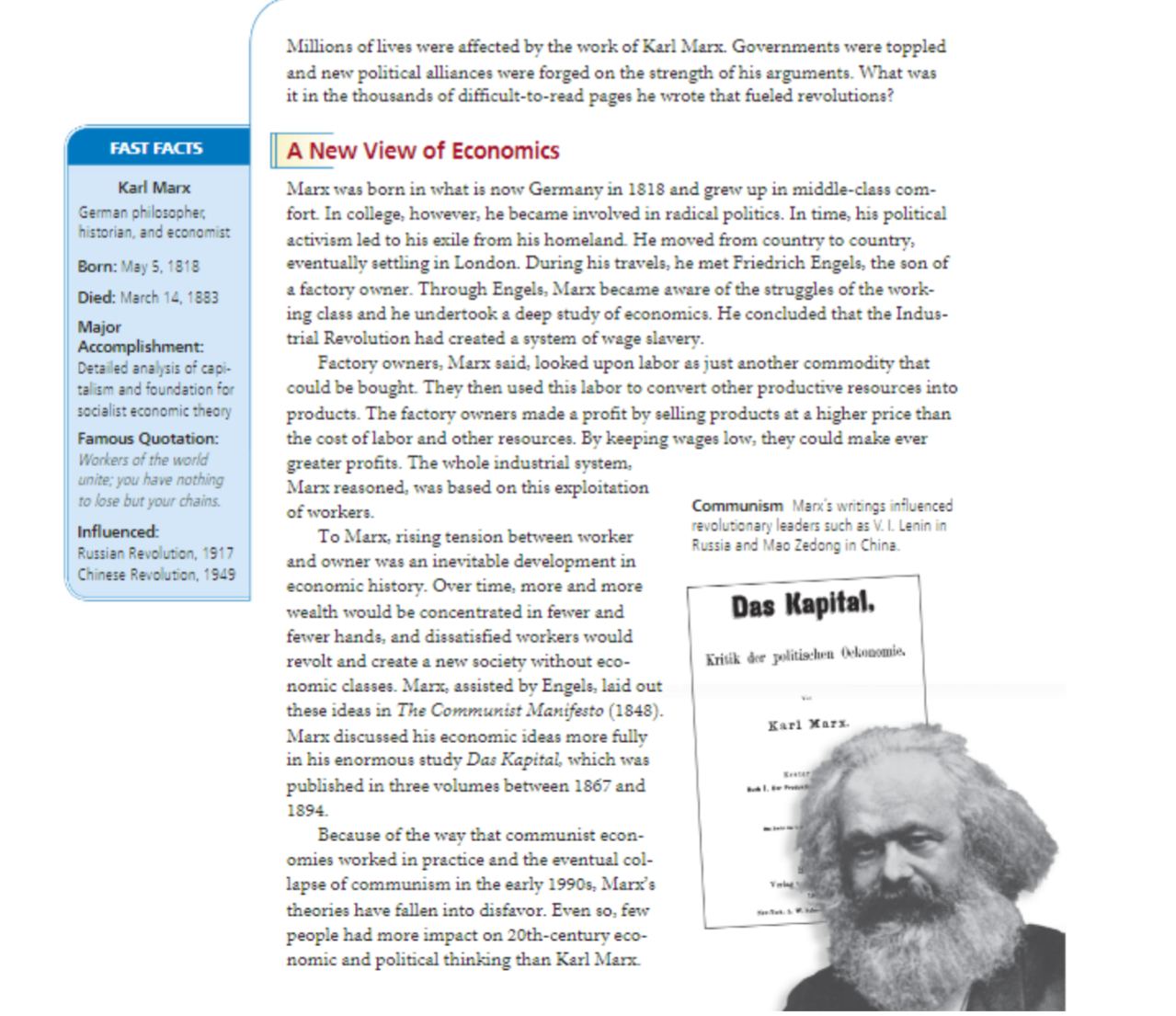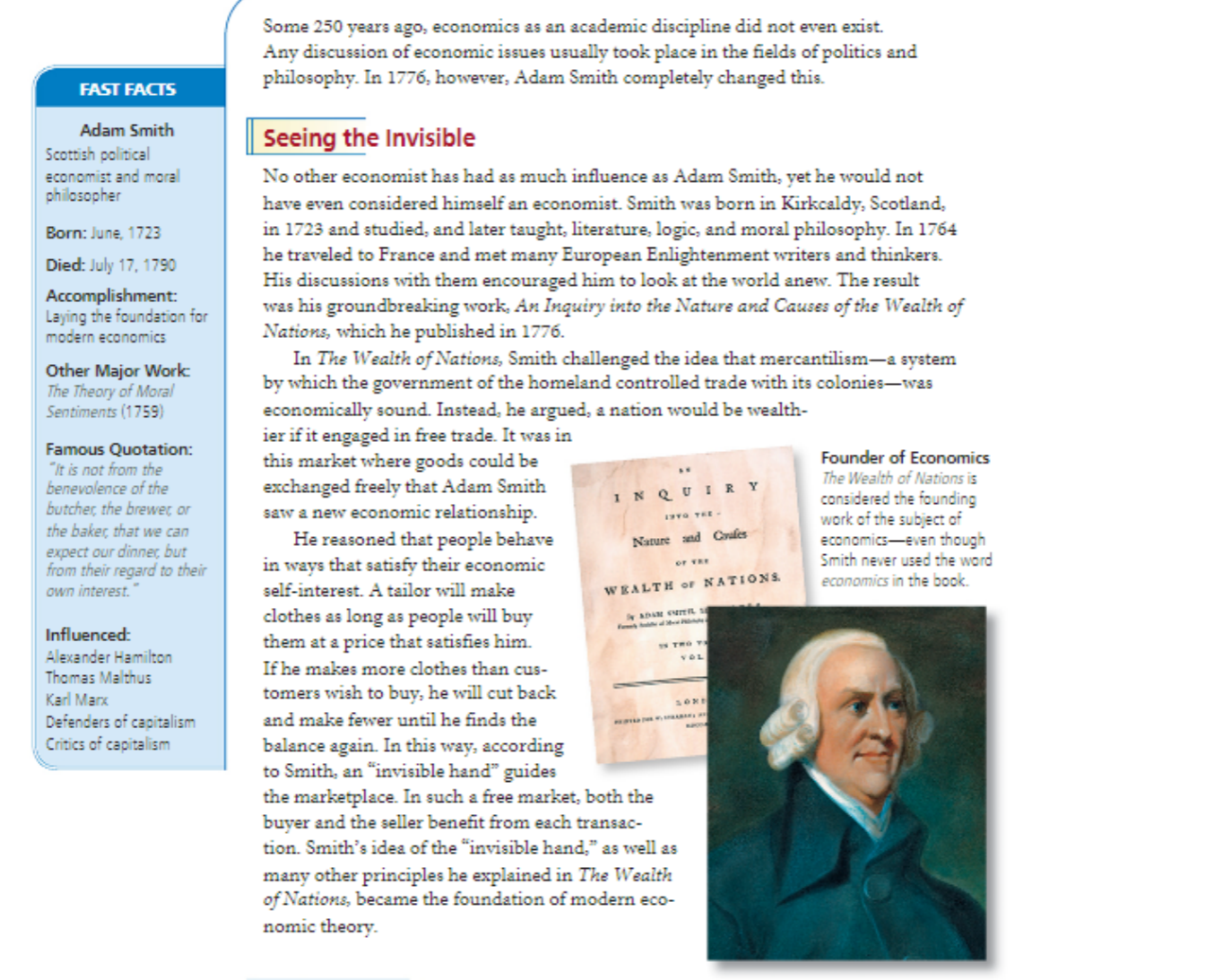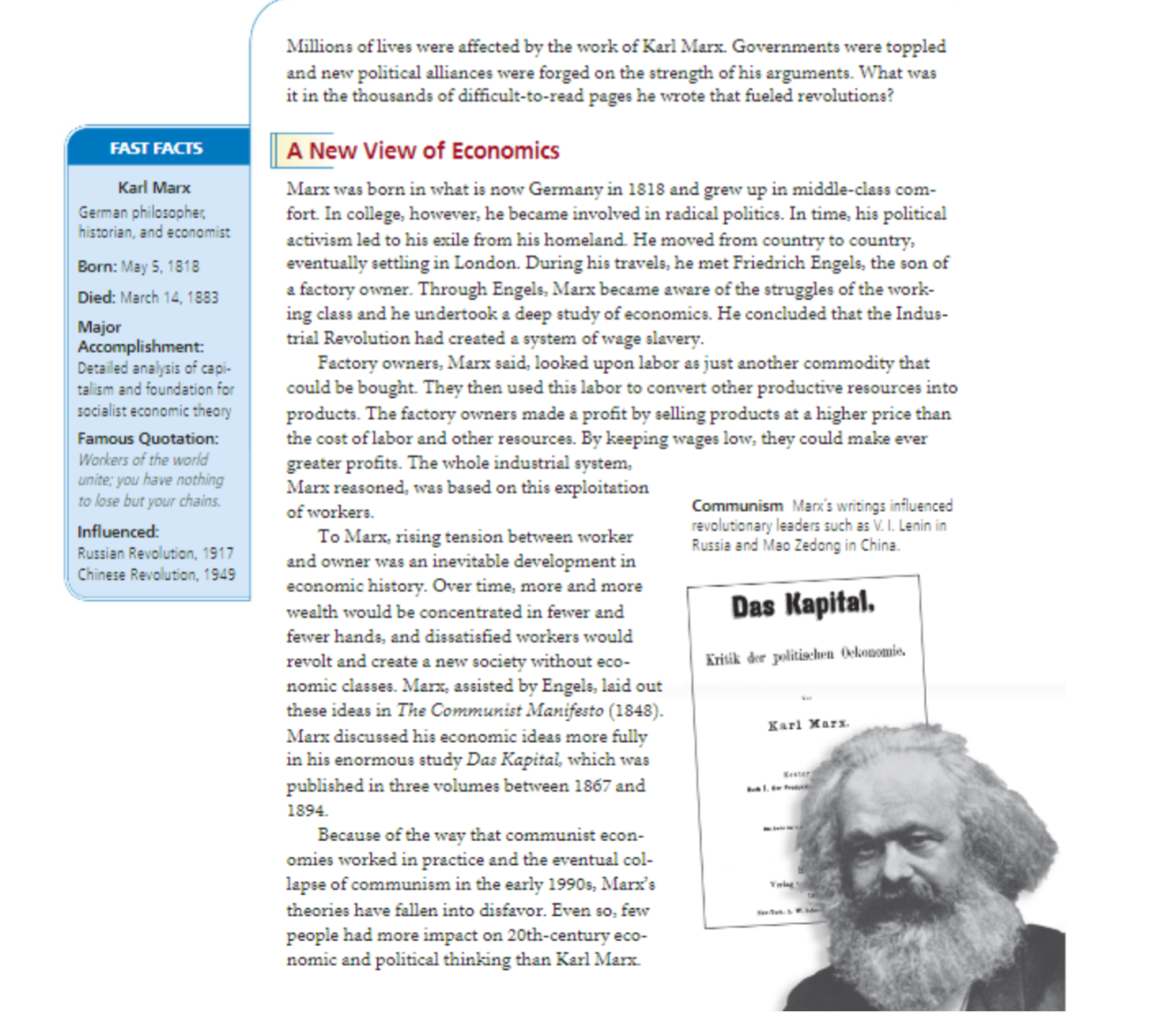


answer
Write about three Influential individuals who had a significant impact on economics, talk about what their contribution was, what pushed them to in the direction that they went and how did it affect the course of economics. Look at the circumstances in which the economy was at that point and critically analyse how their time differed from times today Millions of lives were affected by the work of Karl Marx. Governments were toppled and new political alliances were forged on the strength of his arguments. What was it in the thousands of difficult-to-read pages he wrote that fueled revolutions? FAST FACTS A New View of Economics Karl Marx Marx was born in what is now Germany in 1818 and grew up in middle-class com- German philosopher, fort. In college, however, he became involved in radical politics. In time, his political historian, and economist activism led to his exile from his homeland. He moved from country to country, Born: May 5, 1818 eventually settling in London. During his travels, he met Friedrich Engels, the son of Died: March 14, 1883 a factory owner. Through Engels, Marx became aware of the struggles of the work- Major ing class and he undertook a deep study of economics. He concluded that the Indus- Accomplishment: trial Revolution had created a system of wage slavery. Detailed analysis of capi- Factory owners, Marx said, looked upon labor as just another commodity that talism and foundation for could be bought. They then used this labor to convert other productive resources into socialist economic theory products. The factory owners made a profit by selling products at a higher price than Famous Quotation: the cost of labor and other resources. By keeping wages low, they could make ever Workers of the world greater profits. The whole industrial system, unite; you have nothing to lose but your chains. Marx reasoned, was based on this exploitation of workers. Communism Marx's writings influenced Influenced: To Marx, rising tension between worker revolutionary leaders such as V. I. Lenin in Russian Revolution, 1917 Russia and Mao Zedong in China. Chinese Revolution, 1949 and owner was an inevitable development in economic history. Over time, more and more wealth would be concentrated in fewer and Das Kapital. fewer hands, and dissatisfied workers would revolt and create a new society without eco- Krisik der politischen Oekonomie. nomic classes. Marx, assisted by Engels, laid out these ideas in The Communist Manifesto (1848). Karl Marx. Marx discussed his economic ideas more fully in his enormous study Das Kapital, which was published in three volumes between 1867 and 1894. Because of the way that communist econ- omies worked in practice and the eventual col- lapse of communism in the early 1990s, Marx's theories have fallen into disfavor. Even so, few people had more impact on 20th-century eco- nomic and political thinking than Karl Marx.Some 250 years ago, economics as an academic discipline did not even exist. Any discussion of economic issues usually took place in the fields of politics and FAST FACTS philosophy. In 1776, however, Adam Smith completely changed this. Adam Smith Seeing the Invisible Scottish political economist and moral No other economist has had as much influence as Adam Smith, yet he would not philosopher have even considered himself an economist. Smith was born in Kirkcaldy, Scotland, Born: June, 1723 in 1723 and studied, and later taught, literature, logic, and moral philosophy. In 1764 Died: July 17. 1790 he traveled to France and met many European Enlightenment writers and thinkers. Accomplishment: His discussions with them encouraged him to look at the world anew. The result Laying the foundation for was his groundbreaking work, An Inquiry into the Nature and Causes of the Wealth of modern economics Nations, which he published in 1776. Other Major Work In The Wealth of Nations, Smith challenged the idea that mercantilism-a system The Theory of Moral by which the government of the homeland controlled trade with its colonies-was Sentiments (1759) economically sound. Instead, he argued, a nation would be wealth- ier if it engaged in free trade. It was in Famous Quotation: this market where goods could be Founder of Economics It is not from the benevolence of the exchanged freely that Adam Smith The Wealth of Nations is N UI butcher, the brewer or considered the founding saw a new economic relationship. 1970 TEE - the baker, that we can work of the subject of He reasoned that people behave Nature aand Crates expect our dinner but economics-even though from their regard to their in ways that satisfy their economic OF THE Smith never used the word own interest. self-interest. A tailor will make WEALTH OF NATIONS. economics in the book. clothes as long as people will buy By ADAM CUTTIL Influenced: them at a price that satisfies him. Alexander Hamilton Thomas Malthus If he makes more clothes than cus- Karl Marx tomers wish to buy, he will cut back Defenders of capitalism and make fewer until he finds the Critics of capitalism balance again. In this way, according to Smith, an "invisible hand" guides the marketplace. In such a free market, both the buyer and the seller benefit from each transac- tion. Smith's idea of the "invisible hand," as well as many other principles he explained in The Wealth of Nations, became the foundation of modern eco- nomic theory












